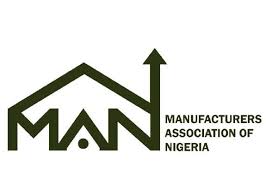The Manufacturers Association of Nigeria (MAN) has again raised alarm over the difficult situation facing the country’s manufacturing sector. The association said the Nigerian business environment has become so challenging that both local and foreign investors are beginning to lose confidence. According to MAN, many investors are now rethinking their interest in expanding factories, bringing new technology, and growing industrial capacity because the operating environment is becoming tougher every year.
The President of MAN, Otunba Francis Meshioye, stated this during an interview in Lagos, where he explained the harsh conditions affecting manufacturers are not only caused by global geopolitical tensions such as supply chain disruptions, rising energy costs and international conflicts, but also by long-standing domestic problems within Nigeria. These include inconsistent government policies, poor infrastructure, high production costs, foreign exchange shortages, and security concerns. He added that these issues continue to slow industrial growth and discourage innovation.
Meshioye stressed that Nigeria can only grow its manufacturing capacity through strong collaboration between the government of President Bola Ahmed Tinubu and private sector players. He said the Tinubu administration must continue to provide steady support to manufacturers if the country hopes to achieve meaningful economic transformation. According to him, manufacturing is too important to be ignored, as it plays a major role in job creation, wealth generation and technological development.
The MAN President noted that the association has been working closely with several government officials on Nigeria’s fiscal policy. He said MAN has been giving recommendations and participating in key stakeholder engagements aimed at improving the industrial environment. These engagements, he explained, have helped shape some of the business-friendly policies the government has recently introduced. He acknowledged that the current administration has made efforts to address problems related to regulatory agencies, multiple taxation and the ease of doing business.
He said there has been quick intervention in some cases where manufacturers were facing unnecessary pressure from regulators. These interventions, according to him, show that the government understands the importance of local industries to Nigeria’s long-term economic stability.
Meshioye emphasised that no country in the world has ever achieved sustained economic growth without building a strong manufacturing base. He gave the example of the United States, which became one of the world’s biggest economies through manufacturing. He said even though the US once relaxed its attention on the sector, it later realised the danger and has since taken bold steps to rebuild its manufacturing strength. This, he said, should be a lesson for Nigeria as it struggles to improve local production and reduce heavy dependence on imports.
The MAN leader described manufacturing as the “backbone of job creation and national productivity.” He said it contributes directly to industrialization, national security and economic pride. But he warned that the Nigerian manufacturing sector is currently operating under an “inclement atmosphere” marked by global disruptions on one side and serious domestic problems on the other. These challenges, he said, are not theoretical—they have real impact on jobs, production output and Nigeria’s ability to compete globally.
Meshioye stated that Nigeria cannot hope to reduce poverty, create millions of jobs or earn steady foreign exchange if local industries are not strengthened. He said the country must stop relying on imported goods and exporting raw materials that other nations process into finished products. According to him, Nigeria will continue to lose value and opportunities unless local producers are supported and protected.
The industrialist also spoke about Nigeria’s development model, which for decades has relied heavily on importation and weak enforcement of local content laws. He said this trend is reflected in Nigeria’s national accounts. Following the rebasing of the Gross Domestic Product (GDP), the country’s economy was adjusted to $244 billion (N372.82 trillion), largely because of better measurement of sectors like services, agriculture and the informal economy.
However, Meshioye said the rebasing also revealed worrying facts. He noted that real economic growth has remained weak, averaging only 1.95 per cent over the last five years. More concerning is the drop in the contribution of the industrial sector to GDP—from 27.65 per cent before rebasing to 21.08 per cent after the 2019 adjustment. Within this decline, manufacturing performed worst, with a five-year average real contraction of –0.76 per cent between 2019 and 2024. This means the manufacturing sector has actually been shrinking in real terms for five years, even though the overall economy appears bigger on paper.
Meshioye concluded that Nigeria’s economy may be growing in size, but it is becoming less productive and less industrialised. He said the country must urgently prioritise manufacturing if it hopes to build a strong and competitive economy that can support future generations.
